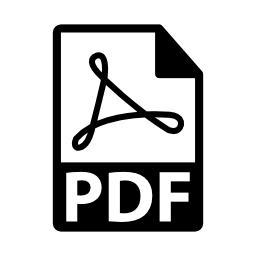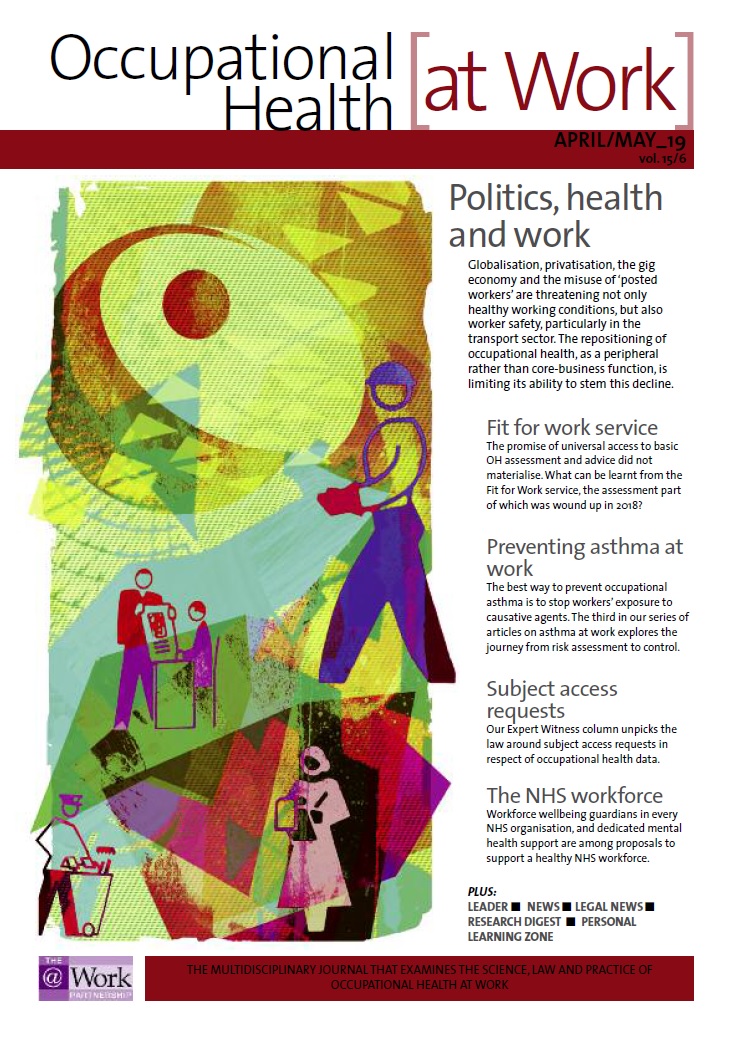April/May 2019 (vol. 15/6)
ContentsFeaturesNewsLegal
NewsResearch DigestResearch PlusCPD
 Personal Learning Zone in this issue
Personal Learning Zone in this issue
Summary:
FEATURED ARTICLES
This issue of Occupational Health [at Work] features a Personal Learning Zone (PLZ) article recommended for continuing professional development (CPD). The assignment questions, ‘Personal learning statement’ and ‘Certificate of engagement’ are available to subscribers here. These will also be stored in your password-protected PLZ. The PLZ will help you document your own CPD. Occupational health physicians and nurses, occupational hygienists and other professionals can use the resource in support of their specialism’s revalidation or CPD requirements.
Pages 29–34. Asthma at work: part 3. Good occupational hygiene – the pathway to prevention. Our series of articles on occupational asthma has considered its causes, prevalence and diagnosis. But the key to reducing its burden is prevention, with successful strategies underpinned by compliance with the COSHH Regulations. Thorough risk assessment, implementation of control measures that follow hierarchy-of-control principles, and assessing control effectiveness are at the heart of good prevention strategies.
ADDITIONAL CPD
The following articles, news and research items are suggested reading for CPD and professional revalidation. Subscribers can complete their online Personal Learning Zone CPD record here.
Pages 8–9. Migraine affects more than one in four people of working age. It can have a huge impact on individuals, and is estimated to cost employers around €95 billion a year across Europe in lost productivity. But providing job flexibility and ‘migraine friendly’ worksites can go a long way to supporting employees with the condition.
Pages 11–12. The Employment Appeal Tribunal, in Nissa v Waverly Education Foundation Limited and Newsome, held that a tribunal was wrong in its assessment of whether or not a woman with fibromyalgia was disabled. The question turned on whether her impairments had a substantial effect on her ability to carry out normal day-to-day activities and, at the time of the alleged discrimination, these were likely to last at least 12 months. Medical evidence was crucial.
Pages 35–37. Handling subject access requests (SARs) made under the General Data Protection Regulation is complex, especially in respect of OH records. Issues include requests made on behalf of data subjects, for example by solicitors; the need for OH professionals to retain control of SARs even if their organisation insists it, rather than the OH department, is the legal data controller; and disclosures that include information about third parties.
Pages 38–42. Our compendium of recent research in occupational health features an updated Cochrane systematic review that found that general health checks, including those given as part of an employment wellbeing initiative, are unlikely to be beneficial.
Author: The At Work Partnership Ltd
Occupational Health at Work April/May 2019 (vol. 15/6) pp43



